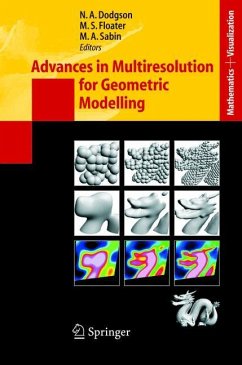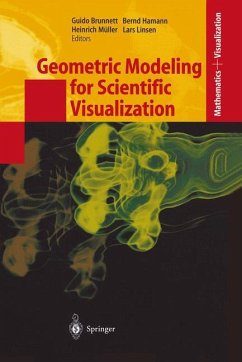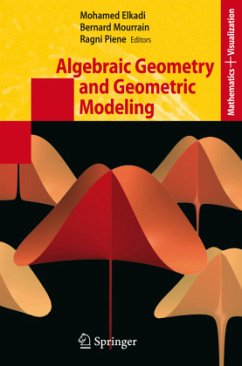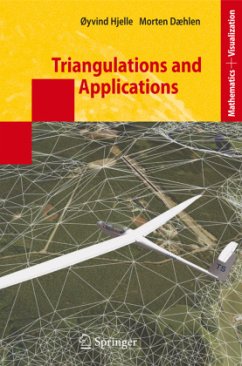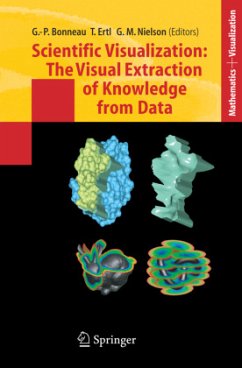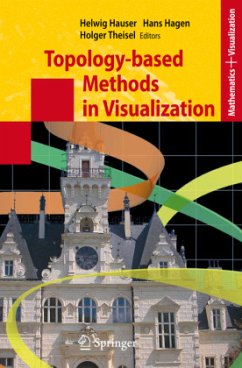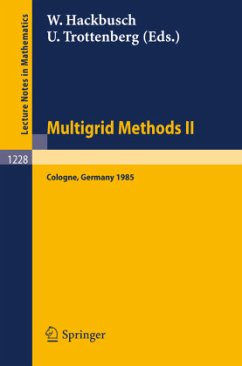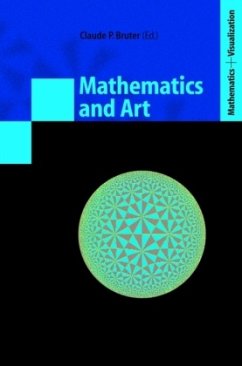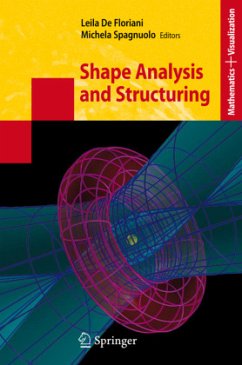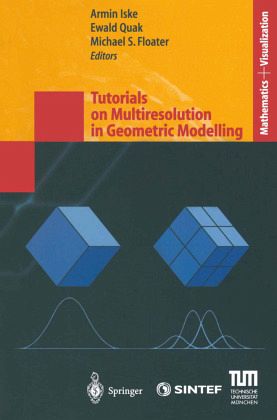
Tutorials on Multiresolution in Geometric Modelling
Summer School Lecture Notes. Other supplementary material and software can be downloaded from the website
Herausgegeben: Iske, Armin; Quak, Ewald; Floater, Michael S.
Versandkostenfrei!
Versandfertig in 6-10 Tagen
38,99 €
inkl. MwSt.

PAYBACK Punkte
19 °P sammeln!
Multiresolution methods in geometric modelling are concerned with the generation, representation, and manipulation of geometric objects at several levels of detail. Applications include fast visualization and rendering as well as coding, compression and digital transmission of 3D geometric objects.This book is based on thirteen tutorials presented during the European Summer School "Principles of Multiresolution in Geometric Modelling", held at the Munich University of Technology, Germany, during August 22-30, 2001. The book covers: subdivision; wavelets; scattered data modelling; and coding an...
Multiresolution methods in geometric modelling are concerned with the generation, representation, and manipulation of geometric objects at several levels of detail. Applications include fast visualization and rendering as well as coding, compression and digital transmission of 3D geometric objects.
This book is based on thirteen tutorials presented during the European Summer School "Principles of Multiresolution in Geometric Modelling", held at the Munich University of Technology, Germany, during August 22-30, 2001. The book covers: subdivision; wavelets; scattered data modelling; and coding and data structures.
The tutorials are designed to be introductory in character, and include supporting exercises. Other supplementary material and software can be downloaded from the Web Site www.ma.tum.de/primus 2001/.
This book is based on thirteen tutorials presented during the European Summer School "Principles of Multiresolution in Geometric Modelling", held at the Munich University of Technology, Germany, during August 22-30, 2001. The book covers: subdivision; wavelets; scattered data modelling; and coding and data structures.
The tutorials are designed to be introductory in character, and include supporting exercises. Other supplementary material and software can be downloaded from the Web Site www.ma.tum.de/primus 2001/.



